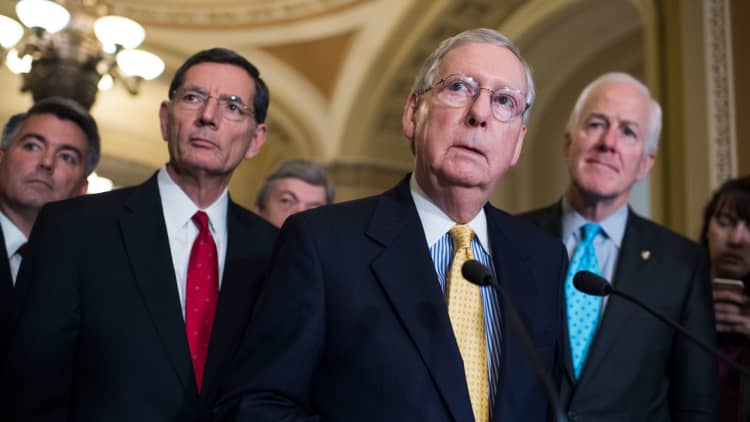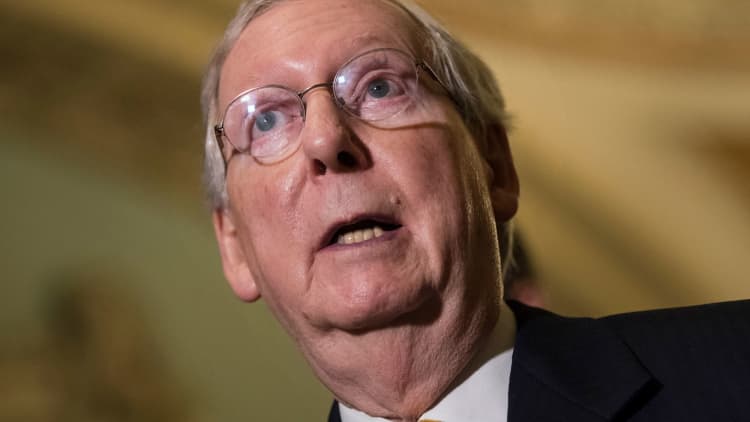
Senate Republicans will hold a vote Tuesday in their latest push to repeal the Affordable Care Act — and it is unclear now if party divisions will again stall the effort that the GOP has championed for most of the last decade.
Here's what we know about Tuesday's procedural vote right now:
- Senators will decide whether to support a motion to proceed, a procedural step to start debate. The chamber will technically vote on whether to proceed to the Obamacare replacement plan that the House passed in May.
- Republicans hold 52 seats in the Senate. Under the procedure they are using, they only need a majority of votes to proceed. Sen. John McCain, R-Ariz., is returning to the Senate just days after revealing he has a brain tumor. With McCain's expected support for the plan, the GOP can lose two votes from its caucus and still approve the motion, with Vice President Mike Pence casting a tiebreaking vote.
- Only one GOP senator — Sen. Susan Collins of Maine — has firmly stated she will vote "no" on the motion. Sen. Rand Paul, R-Ky., said he would support the motion after he was told that Republicans plan to at least take up the 2015 repeal bill. Sens. Dean Heller, R-Nev., and Shelley Moore Capito, R-W.V., said they would back the motion, as well. Other GOP senators appeared to be undecided on Tuesday afternoon.
- It is unclear what form the bill would take if the procedural vote passes. The Senate would make amendments and potentially take up one of multiple repeal plans: some form of a repeal and replacement bill that stalled out amid opposition from skeptical Republicans, or a repeal first, replace later plan originally passed in 2015 that some GOP senators worried would create more instability in insurance markets. Potential pieces of at least one of those plans may require 60 votes, complicating the GOP effort.
- One possible route could end with a so-called skinny repeal, according to NBC News, which cited two Senate sources. The Senate would "move on to debate and vote on a variety of approaches to the bill," like the repeal now and replace later plan that Paul supports but is expected to get blocked, NBC reported.
- The chamber could then field some version of the replacement plan that stalled out recently, which may also fail. After that may come a vote for a partial, "skinny" repeal that would eliminate the individual mandate penalty, the employer mandate penalty and the medical device tax, according to NBC. A spokesman for Senate Majority Leader Mitch McConnell declined to comment to CNBC on what the Senate would do next if the motion passes.
- Congressional Budget Office estimates of both the repeal and replace and the repeal-first plans' effects stirred concerns among more moderate Republicans.
- After inconsistent engagement through much of the process, President Donald Trump has applied more pressure on senators in recent days to get behind a repeal and replace effort.
WATCH: Here's what will happen if Republicans repeal Obamacare



